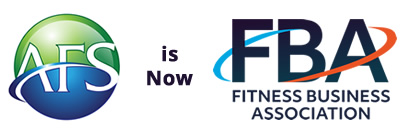
By Mike Jesowshek, Special AFS Contributor
When you own a fitness studio, you have so much extra time on your hands that you’d welcome the opportunity to spend hours upon hours dealing with an IRS audit, right?
Yeah, not exactly.
Outlined here are some things you should or should not do to help keep the IRS off your back and avoid that dreaded IRS audit.
- Large Personal Deductions: If you have large deductions disproportional to your income, the IRS may become suspicious. The agency uses tables to determine how much in deductions is too much for each income bracket. If, for example, it looks like you’re far too charitable for someone with your reported income, your return may get flagged.
- Excessive Business Deductions: The IRS is tough on business owners who mix business and personal expenses. We strongly encourage clients to take advantage of the available deductions, however, being too liberal can get you in trouble. These expenses should make sense based on your income level. Always ask yourself, is this ordinary and necessary for my business, if so deduct away, if not use personal funds. Do not be afraid to take the home office deduction but at the same time, do not get too greedy with it. Have documents to back up your square footage percentage. The IRS tends to take notice when filers blur the lines between business and personal funds.
- Round numbers: You should never round up or average any numbers on your tax return. If, for example, your sales are $232,098.29 in a given year you should not round down to $232,000. Nice, round numbers are not common on tax forms and may be considered red flags.
- File On Time and Electronically: Do not file a late return. If you need to extend to give you more time, that is fine. All too often business owners prepare their taxes and see an amount due that they cannot afford at that time. That does not count as an excuse or option to not file. Not filing will only cause more problems down the road. If you have a tax bill you cannot afford, still, file your return on time but then work out a payment plan with the IRS to handle the amount due. Paper tax returns have historically been audited at a higher rate because they often have errors on them. If electronically filing is available to you, take advantage of it while also saving the trees!
- File Payroll Related Documents On Time and Accurately: If you have independent contractors be sure to issue and file your 1099s in January. To aid in this, collect a W9 from your contractors before you pay them so you have the required information on file. If you have employees be sure you are filing payroll returns as well as the tax withholdings along with them. Payroll can be complicated even for one employee, utilize a payroll service to make sure nothing slips through the cracks.
- Use a Professional: Tax returns involving a business are much more complicated than when you were simply an employee. When it comes to taxes there are things that only a professional will know and be able to recognize when filing your tax return.
Sometimes as a business owner, you can do everything possible to avoid an audit and you still might get hit with the audit hammer. Whatever you do, do not ignore any notices you receive, they will not go away.
Being Prepared for an Audit
Sometimes as a business owner, you can do everything possible to avoid an audit and you still might get hit with the audit hammer. Whatever you do, do not ignore any notices you receive, they will not go away. Bring them to your tax preparer to review and craft a response for you. Sometimes they are super simple and other items they can be much more serious. Here are some steps below that can help you be better prepared in the event of an audit.
- Have accurate and up to date bookkeeping
- Business expenses ONLY on your business bank accounts and credit cards
- Use an accountable plan if necessary
- Keep Great Records
- Receipts that back up every business expense (who/what/where/when/why)
- Records for charitable contributions and medical expenses
- Avoid Cash Transactions
- Document your calculations for your home office size
- Double check your work
Conclusion
In conclusion, the chances of being audited are actually pretty low. Do not be afraid to take business expenses that you are rightfully entitled to. Just be sure to review and follow the items you should or should not be doing. When doing your bookkeeping always complete it as if you are going to be audited so if in the rare chance you are, you are fully prepared and can breeze through it. If you are interested in learning more about the topic above or any other bookkeeping or tax-related items, send me a message, I would be more than happy to chat!
Mike Jesowshek, CPA is the founder of the accounting firm JETRO and Associates. He has a strong passion for both fitness professionals and technology. He helps provide a digital accounting, bookkeeping, and tax solution for studio and gym owners who are looking to take it to the next level by utilizing modern, cutting edge technology.


Join the Conversation!